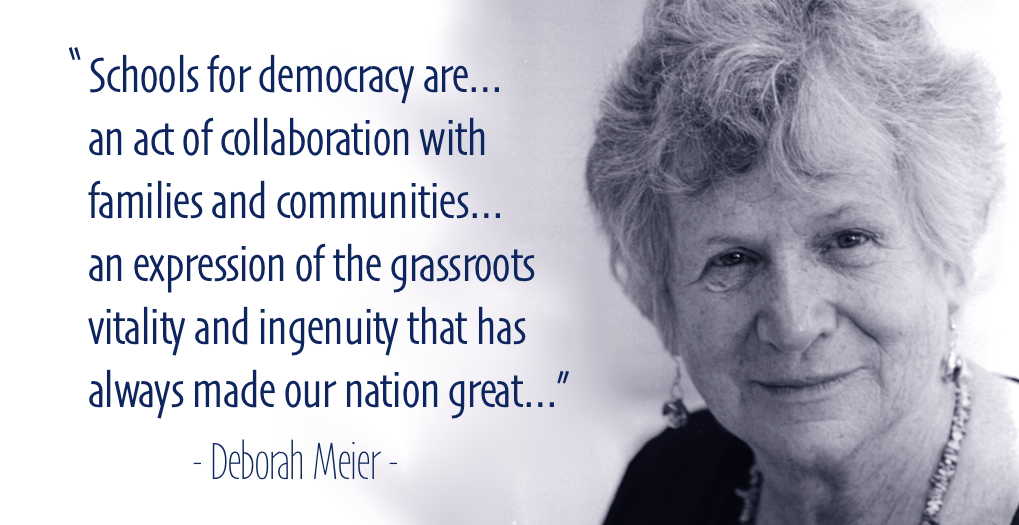Dignity and Respect in Public Schools

Deborah Meier continues her conversation with Harry Boyte. To read their full exchange, please visit here.
Dear Harry and friends,
I've spent the last five days trying to get my new fancy iPhone 6 Plus to work. Hours on the phone and a visit back to the Apple store Genius and ... it still is misbehaving. It gives me a slight delight. Even the experts can't always save us. Why does that please me? I'm not sure. Since teachers were never considered experts, perhaps it's a kind of revenge fantasy. For years when I spoke I shared the stage with someone who was called "the expert" while I was "the practitioner." For a while, after I got the MacArthur "Genius" Award I was treated somewhat better. But it wears off.
Thanks for filling me in a bit more on what you were doing before we met—down South.
Someday I'll make you sit down and tell me the whole story.
Meanwhile. I like the Oliver Harvey story. I was stuck by his use of the word "dignity," which has not been in fashion of late. It was the loss of dignity that I was most struck with when I entered teaching in Chicago. I had never been treated as disrespectfully—even as a child—and wasn't sure how to respond. It turned out to be an advantage since it soon became clear to others that I wouldn't "tolerate" it. But then I became a teacher when I was in my 30s, and I was white. One of the effects of the schooling that the least advantaged get during their years and years of schooling is a kind of outward numbness to institutional disrespect. Among their peers, being treated with dignity becomes even more important perhaps for this very reason.
It became clear to me, Harry, that boys—particularly if they were Black—got the worst of it above all from white teaches. During one of our perennial "hat policy" disputes I came to this conclusion: Dignity and Respect in Public Schools - Bridging Differences - Education Week:
